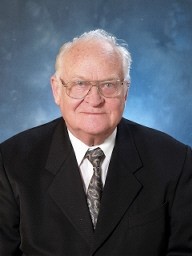|
Karl Rebane
Karl Rebane (11 April 1926, Pärnu – 4 November 2007, Tartu)[1] was a Soviet and Estonian physicist. BiographyHe studied at the Tallinn Technical University from 1947 to 1949, and graduated from the Leningrad University in 1952. Rebane received a PhD in Solid State Theory in 1955 from Leningrad University and a Doctor of Sciences degree in Theoretical Physics in 1964 from the Institute of Physics of the Belarusian AS at Minsk. He joined Tartu University in 1955 where he held both teaching and administrative positions, including Professor and Chair of the Experimental Physics Department (1958–60), and Professor and Chair of the Joint Department of Laser Optics at the Institute of Physics and Tartu University (1974–1993).[2] He was president of the Estonian Academy of Sciences from 1973 to 1990.[3] Early lifeKarl Rebane was born in Pärnu, Estonia.[1] His father, Karl Rebane Sr., was a bookkeeper.[4] He was the second oldest out of five children.[4] His brothers were Jaan Rebane, Toomas Rebane (:et) and Jüri Rebane.[4] The war reached Estonia in 1941 and his family evacuated to a small village in the oblast of Chelyabinsk where he worked at the local kolkhoz and attended a school for displaced Estonian children in Verkhneuralsk.[1] In the spring of 1944, he was called into military service and joined Eesti Laskurkorpus, an Estonian division of the Red Army, where he was a crew member of a 45 mm antitank gun.[1][5] He was wounded in battle on November 23, 1944, on the Sõrve peninsula, Estonia.[1][5] Awards and honoursFor research and scientific activity:
FamilyHe was married to Ljubov Rebane, and had two children, Inna and Aleksander Rebane. He also had three brothers, Jaan, Toomas, and Jüri Rebane. His niece is writer and mathematician Helju Rebane. References
|
||||||||||||||
Portal di Ensiklopedia Dunia
